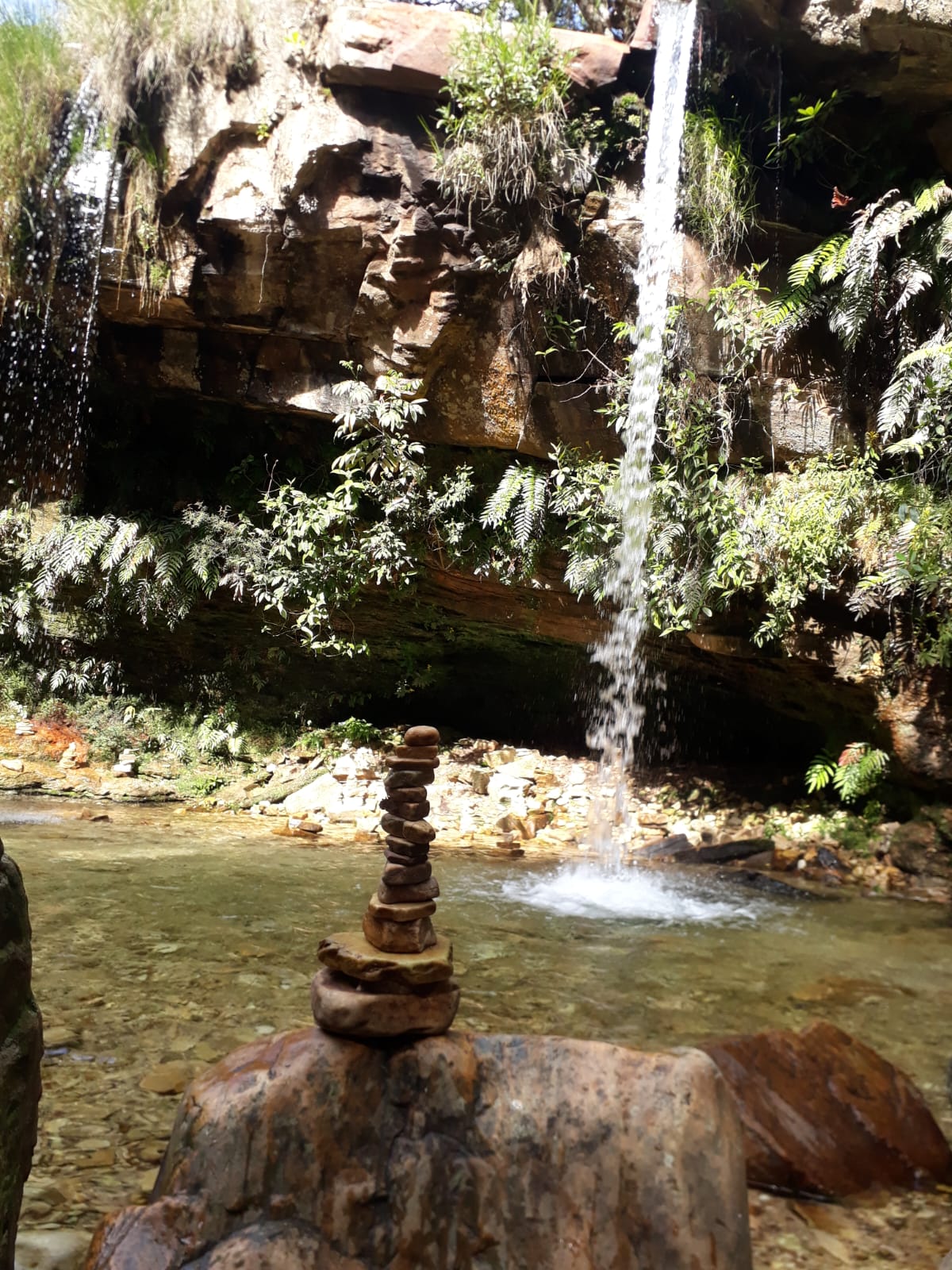Cocriação de Valor no Comércio Social
Efeito da Tripla Mediação em Comunidades Online de Viagens
DOI:
https://doi.org/10.29149/mtr.v8i3.7895Palavras-chave:
comércio social, destino turístico, suporte social, relacionamento de qualidade, cocriação de valorResumo
A partir da teoria do comércio social, o presente estudo visa compreender de que maneira consumidores participam do processo de cocriação de valor de destinos turísticos ao compartilhar informações em comunidades de viagens online. Este fenômeno é observado a partir de um modelo de mediação paralela que possui três mecanismos que atuam conjuntamente: suporte social, relacionamento de qualidade e intenção de cocriação de valor no comércio online social. Os dados foram coletados através de questionário online autoadministrado e orientado a usuários de comunidades online relacionadas a viagens. A partir do uso dos softwares Smart PLS-SEM 3.0, JAMOVI e SPSS/PROCESS, é possível inferir que os resultados obtidos na pesquisa demonstraram que o modelo teórico testado possui bons níveis de ajuste e alto poder de explicação, confirmando a mediação proposta. Isso implica em dizer que as interações sociais, como curtidas, conselhos e recomendações, geradas pelo consumidor e impulsionadas pela tecnologia, por meio do comércio social, podem gerar valor aos destinos turísticos, e que isso ocorre de maneira mais forte por meio de três variáveis explicativas. Teoricamente, contribui para a literatura do turismo ao apresentar um modelo teórico dos antecedentes da crocriação de valor de destinos turísticos em um mercado emergente. Gerencialmente, busca oferecer insights para que gestores de destinos possam acompanhar, monitorar e analisar os antecedentes da cocriação de valor de forma a buscar maximizar esse processo, em especial no cenário pós-pandêmico que o mundo vem enfrentando, causado pelo Covid-19 (SARS-CoV-2). A cocriação de valor pode servir, portanto, como uma estratégia de gerenciamento de destinos, ao guiar gerentes do setor turístico sobre como se posicionar de forma a dar suporte aos usuários e fornecer informações de qualidade, buscando, assim, colaboração com os consumidores nas redes sociais, agregando valor à experiência de forma a aumentar o valor percebido do destino de maneira geral.
Referências
Bazi, S., Hajli, A., Hajli, N., Shanmugam, M., & Lin, X. (2019). Winning engaged consumers: The rules of brand engagement and intention of co-creation in social commerce. Information Technology & People, 33(2), 456–476.
Bernardes, R., Borini, F., & Figueiredo, P. N. (2020). Inovação em Organizações de Economias Emergentes. Cadernos EBAPE. BR, 17, 886-894.
Carneiro, J., & Allis, T. (2021). Como se move o turismo durante a pandemia da COVID-19?. Revista Brasileira de Pesquisa em Turismo, 15.
Chen, C. C. V., & Chen, C. J. (2017). The role of customer participation for enhancing repurchase intention. Management decision.
Chin, W. W. (1998). The partial least squares approach to structural equation modeling. Modern methods for business research, 295(2), 295-336.
Choi, E., Ko, E., & Kim, A. J. (2016). Explaining and predicting purchase intentions following luxury-fashion brand value co-creation encounters. Journal of Business Research, 69(12), 5827–5832.
Chuang, S. H. (2018). Facilitating the chain of market orientation to value co-creation: The mediating role of e-marketing adoption. Journal of destination marketing & management, 7, 39-49.
Claveria, O. (2016). Positioning emerging tourism markets using tourism and economic indicators. Journal of Hospitality and Tourism Management, 29, 143-153.
Cohen, S., & Wills, T. A. (1985). Stress, social support, and the buffering hypothesis. Psychological bulletin, 98(2), 310.
De Lima, M. M., Mainardes, E. W., & Rodrigues, R. G. (2020). Tourist expectations and perception of service providers: a Brazilian perspective. Service Business, 14(1), 131-166.
Dunn, T. J., Baguley, T., & Brunsden, V. (2014). From alpha to omega: A practical solution to the pervasive problem of internal consistency estimation. British journal of psychology, 105(3), 399-412.
Fan, D. X., Hsu, C. H., & Lin, B. (2020). Tourists’ experiential value co-creation through online social contacts: Customer-dominant logic perspective. Journal of Business Research, 108, 163-173.
Fecomércio SP. (2022). Turismo: em dois anos de pandemia, setor de viagens corporativas perde cerca de R$ 100 bilhões, equivalente a um ano inteiro de faturamento. Disponível em: https://www.fecomercio.com.br/noticia/turismo-em-dois-anos-de-pandemia-setor-de-viagens-corporativas-perde-cerca-de-r-100-bilhoes-equivalente-a-um-ano-inteiro-de-faturamento. Acesso em 03 de maio de 2022.
Hair, J. F., Black, W. C., Babin, B. J., Anderson, R. E., & Tatham, R. L. (2009). Análise multivariada de dados. Bookman editora.
Hair, J., Hult, G., Ringle, C., & Sarstedt, M. (2017). A primer on partial least squares structural equations modeling (PLS-SEM) (2nd ed.). Los Angeles: Sage.
Hajli, M. N. (2014). A study of the impact of social media on consumers. International journal of market research, 56(3), 387-404.
Hayes, A. F. (2018). Introduction to mediation, moderation, and conditional process analysis, Second Edition, A regression-based approach, New-York.
Hayes, A.F. (2020). Process macro version 3.4.1. Retrieved from http://www.processmacro.org/
Hulland, J., Baumgartner, H., & Smith, K. M. (2018). Marketing survey research best practices: evidence and recommendations from a review of JAMS articles. Journal of the Academy of Marketing Science, 46(1), 92–108.
IBM Corp, N. (2013). IBM SPSS statistics for windows. (Version 22.0).
The jamovi project (2022). jamovi (Version 2.2.5) [Computer Software]. Retrieved from https://www.jamovi.org.
Liang, T. P., Ho, Y. T., Li, Y. W., & Turban, E. (2011). What drives social commerce: The role of social support and relationship quality. International journal of electronic commerce, 16(2), 69-90.
Liu, Y., Su, X., Du, X., & Cui, F. (2020). Como o suporte social motiva a confiança e as intenções de compra no comércio social móvel. Revista Brasileira de Gestão de Negócios, 21, 839-860.
Maia, C. R., Lunardi, G. L., Budiño, G., & de Lima Pereira, M. (2022). A confiança dos consumidores do turismo online no comércio social: um estudo realizado no Brasil e no Uruguai. Revista Brasileira de Pesquisa em Turismo, 16, 2350-2350.
Nadeem, W., Tan, T. M., Tajvidi, M., & Hajli, N. (2021). How do experiences enhance brand relationship performance and value co-creation in social commerce? The role of consumer engagement and self brand-connection. Technological Forecasting and Social Change, 171, 120952.
Nunnally, J. C., & Bernstein, I. H. (1994). Psychometric Theory. Tata McGraw-Hill education.
Paes, T. A. A., Ladeira, R., & Larocca, M. T. G. (2020). Destinos turísticos e a sua relação com o processo de cocriação de valor e o marketing de experiência: uma revisão bibliográfica. Caderno Virtual de Turismo, 20(1).
Prahalad, C. K., & Ramaswamy, V. (2004). Co-creation experiences: The next practice in value creation. Journal of interactive marketing, 18(3), 5-14.
Ribeiro, T. D. L. S. A., Costa, B. K., & Freire, O. B. D. L. (2021). Cocriação de Valor no Turismo–Validação e Replicação de Escala em Relação à Intenção de Recomendação Boca-aBoca. Revista Brasileira de Pesquisa em Turismo, 15.
Ringle, C. M., Da Silva, D., & Bido, D. D. S. (2014). Structural Equation Modeling with the Smartpls. Revista Brasileira de Marketing, 13(02), 56–73.
Ringle, C. M., Wende, S., & Becker, J.-M. (2015). SmartPLS 3 (3.3.3). SmartPLS GmbH. http://www.smartpls.com
Roy, S. K., Balaji, M. S., Soutar, G., & Jiang, Y. (2020). The antecedents and consequences of value co-creation behaviors in a hotel setting: A two-country study. Cornell Hospitality Quarterly, 61(3), 353-368.
Schmitz, C. (2020). LimeSurvey: an open source survey tool. LimeSurvey Project Hamburg, Germany (2015). URL Http://Www. Limesurvey. Org.
Shah, S. H. H., Noor, S., Ahmad, A. B., Butt, A. S., & Lei, S. (2021). Retrospective view and thematic analysis of value co-creation through bibliometric analysis. Total Quality Management & Business Excellence, 1-25.
Shen, H., Wu, L., Yi, S., & Xue, L. (2020). The effect of online interaction and trust on consumers’ value co-creation behavior in the online travel community. Journal of Travel & Tourism Marketing, 37(4), 418-428.
Sparks, B. A., So, K. K. F., & Bradley, G. L. (2016). Responding to negative online reviews: The effects of hotel responses on customer inferences of trust and concern. Tourism Management, 53, 74-85.
Tajvidi, M., Richard, M. O., Wang, Y., & Hajli, N. (2020). Brand co-creation through social commerce information sharing: The role of social media. Journal of Business Research, 121, 476-486.
Tajvidi, M., Wang, Y., Hajli, N., & Love, P. E. (2021). Brand value Co-creation in social commerce: The role of interactivity, social support, and relationship quality. Computers in Human Behavior, v. 115, 105238.
Trizano-Hermosilla, I., & Alvarado, J. M. (2016). Best alternatives to Cronbach's alpha reliability in realistic conditions: congeneric and asymmetrical measurements. Frontiers in Psychology, 7, 769.
World Tourism Organization UNWTO (2019). UNWTO International Tourism Highlights 2019 Edition.
World Tourism Organization UNWTO. (2021). World Tourism Barometer and Statistical Annex, January 2021. World Tourism Barometer (English version) Vol 19, No 1.
Wu, H. C., & Cheng, C. C. (2020). Relationships between experiential risk, experiential benefits, experiential evaluation, experiential co-creation, experiential relationship quality, and future experiential intentions to travel with pets. Journal of Vacation Marketing, 26(1), 108-129.
Downloads
Publicado
Como Citar
Edição
Seção
Licença
Copyright (c) 2023 Mariana Marques de Lima, Mariana Ramos de Melo, Ana Paula Gusmão Fantino, Marcelo Moll Brandão

Este trabalho está licenciado sob uma licença Creative Commons Attribution 4.0 International License.
Autores que publicam nesta revista concordam com os seguintes termos:
- Autores mantém os direitos autorais e concedem à revista, sem ônus para a mesma, o direito de primeira publicação, com o trabalho simultaneamente licenciado sob a Licença Creative Commons Attribution que permite o compartilhamento do trabalho com reconhecimento da autoria e publicação inicial nesta revista
- Autores têm autorização para assumir contratos adicionais separadamente, para distribuição não-exclusiva da versão do trabalho publicada nesta revista (ex.: publicar em repositório institucional ou como capítulo de livro), com reconhecimento de autoria e publicação inicial nesta revista.
- Autores assumem exclusiva responsabilidade pelas suas opiniões emitidas nos trabalhos publicados nesta revista
















